The next generation of Liberal talent lost in Labor landslide
Labor’s election wipe-out has stalled the arrival of a new generation of Coalition talent to parliament. Their plans in tatters, they have a lot to say about what needs to happen now.
Scott Yung wasn’t expecting a request for help from Peter Dutton.
But after Chinese voters abandoned Scott Morrison over his rhetoric towards Beijing, the newly minted Liberal leader needed some advice.
With his eye on a tilt at federal politics that would see him run for the Liberals in Bennelong at the May 3 election, Yung was happy to help bridge the gap.
“It was actually Peter Dutton who reached out to me three years ago, and asked how we can win back Chinese-background voters,” Yung said.
“I started discussing how we could win back Chinese-background voters. And I do want to note that under Peter’s leadership, the language that we used about China did improve, he deserved acknowledgment for that.”
Yung funnelled his efforts into building a campaign on social media platforms WeChat and RedNote, to sway Chinese-diaspora voters.
But for all the good intentions Dutton and the Coalition had, a controversial stance on foreign students and one Liberal frontbencher’s claims that “Chinese spies” could be working on voting booths scuppered Yung’s chances of winning back the crucial demographic.
“At pre-poll Labor just needed to say three words, ‘don’t risk Dutton’,” Yung said.
Yung’s push to retake Bennelong, which was held by Labor’s Jerome Laxale on a wafer-thin margin of 0.04 per cent, now lies in tatters alongside numerous other Coalition election bids that were wiped out in a Labor landslide.
The dismal election loss not only cost Dutton his seat and the leadership, and cost experienced MPs their jobs, it stalled the arrival of a new generation of talent on the Coalition’s backbench.
The Australian has spoken to numerous candidates about their experience of the campaign, doomed to be overshadowed by Donald Trump’s tariffs, which are credited with pushing voters towards continuity.
Many believed a tidal wave of personal attacks on Dutton’s character and image were insurmountable, along with Labor’s efforts to paint the Liberal leader as an Australian Trump.
Some said they felt the Coalition had betrayed itself by engaging in a “sugar hit war” with Labor, based on its promise to slash the fuel excise and a $1200 tax cut, rather than sticking with core Liberal values.
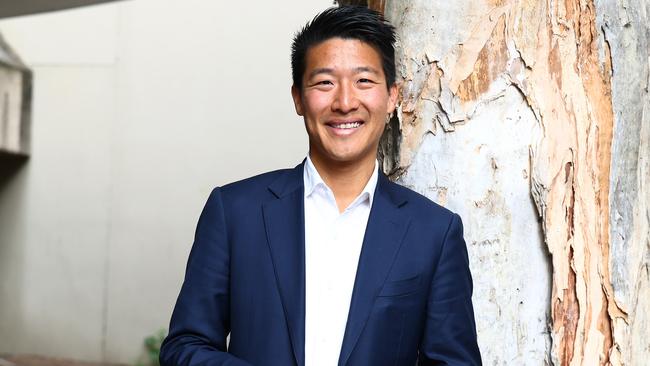
But ultimately it was the Coalition’s policy platform, which became dominated by a plan to build nuclear reactors and cuts to the public service.
Manny Cicchiello, who ran for the Liberals in Aston in Melbourne’s east, said the party’s push for public servants to return to the office full-time had been poorly received in his outer-suburban electorate.
“I remember I was doorknocking during the day, and some of those people who were working from home, I could see that they weren’t happy to see me,” Cicchiello said.
“They’re probably public servants, working in business, they’re people who are switched on.
“They read the room, they know what’s going on, and they probably felt under threat.”
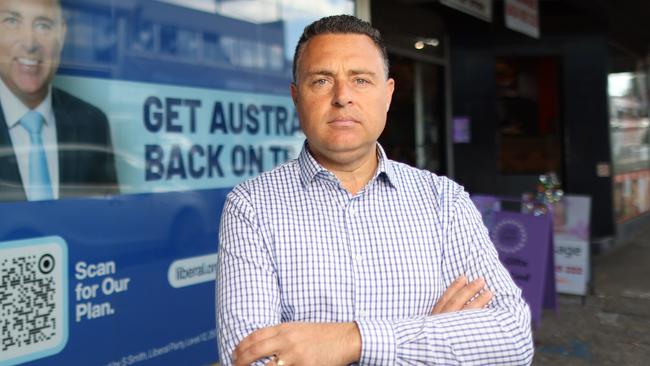
Cicchiello, who was fighting to unseat Labor’s Mary Doyle after her historic by-election victory, said he felt a similar animosity on the hustings the day after Trump announced his trade tariffs.
“Part of the media was painting a picture that Peter Dutton was a mini-Donald Trump, so that, once again, just alienated voters,” he said.
Maggie Forrest, who won a strong primary vote in Ryan in Brisbane’s east but was unable to usurp Greens incumbent Elizabeth Watson-Brown, said her opponents ran an “effective negative campaign” against Dutton.
“The Greens’ campaign never mentioned me once,” she said.
“It was as if Peter Dutton was running against Elizabeth Watson-Brown, that was the real focus of their campaign.”
Forrest said the Coalition’s offering of policies for young people was strong but the message had not cut through, while attacks on Labor’s plan to tax superannuation balances to win over older voters could have been a greater focus.
“The fact that Labor and the Greens want to tax unrealised gains on superannuation, that could have been more prominent,” she said.
Though all the candidates were positive about their election run and their support base of volunteers, some reported having to lean on their own professional experience and credentials as a local to reach voters. One raised concern about the prevalence of career staffers with no private sector experience in the party apparatus.
Many were told they were performing well in the polling in the lead-up to defeat.
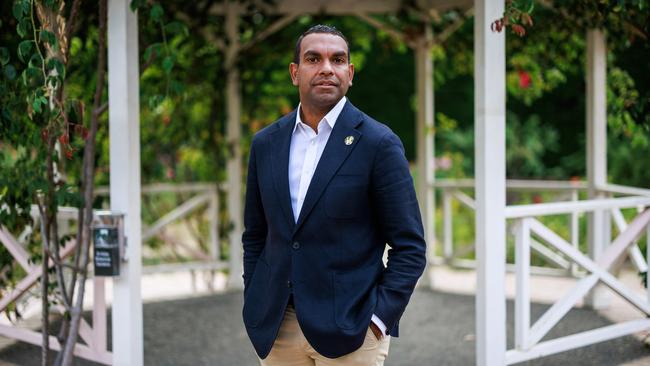
In the race for Macnamara in Melbourne’s southeast, Liberal candidate Benson Saulo found himself in a challenging three-way contest with the Greens and Labor incumbent Josh Burns, who retained the seat.
As the electorate with the largest Jewish population, Macnamara became a flashpoint for community tensions stemming from the Middle East conflict, with the Coalition hoping to win over disaffected Jewish and centrist voters from Labor.
Saulo said he found himself facing attacks for his allegiance to the Liberals as an Aboriginal man, because of the party’s opposition to the Indigenous voice to parliament. He also had his signs defaced with swastikas and stickers saying “Australia for the white man”.
“Macnamara was one of the largest Yes votes in for the referendum and obviously, as an Indigenous candidate, that was something that continually came up,” he said.
“The questioning of me as an Indigenous person, of how I could run for a party like the Coalition, that consistently came up to the point where it was very, very condescending to suggest that I was in the wrong party continually.”
He also faced strong opposition to the Coalition’s nuclear policy among inner-suburban voters.
“Some people, they would say, ‘Look, I like you as a candidate, but just can’t support nuclear’,” he said.
Liberal candidate for Wentworth, Ro Knox, also saw Indigenous issues play out in her electorate, which had a high Yes vote in the referendum, especially after Dutton voiced his views in the final leaders debate that welcome to country ceremonies were “overdone”.
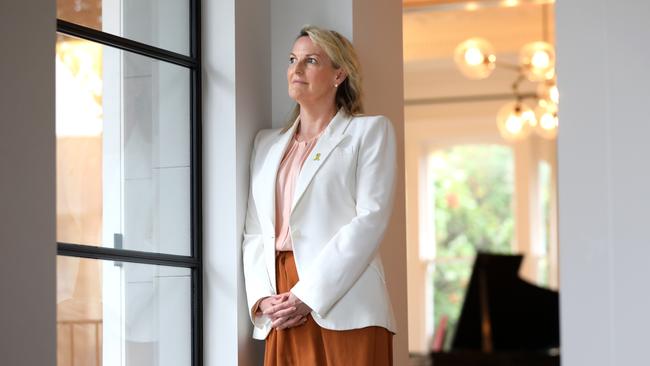
Knox said attacks from Labor and Climate 200 on Dutton came to define her campaign to supplant teal Allegra Spender, and she was unable to shake free from the view that a vote for the Liberal Party was a “vote for Peter Dutton and Trumpian politics”.
Knox said the lesson from the campaign for the Liberal Party was to return to “bread-and-butter” issues rather than “adjacent” concerns, such as welcome to country ceremonies.
“The Australian public have firmly rejected going too far left, which was the result for the Greens,” she said.
“They have also rejected going too far to the right.
“They really want a centrist government, and we have a proud history of being a centre-right party, and we need to go back to that.”


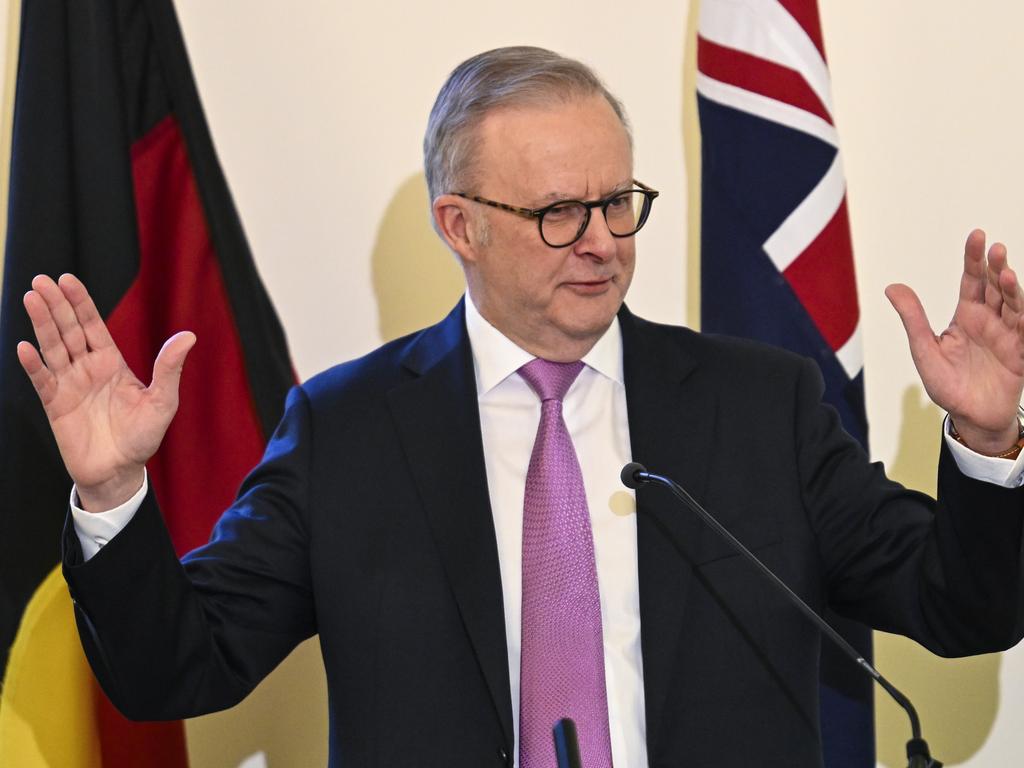

To join the conversation, please log in. Don't have an account? Register
Join the conversation, you are commenting as Logout